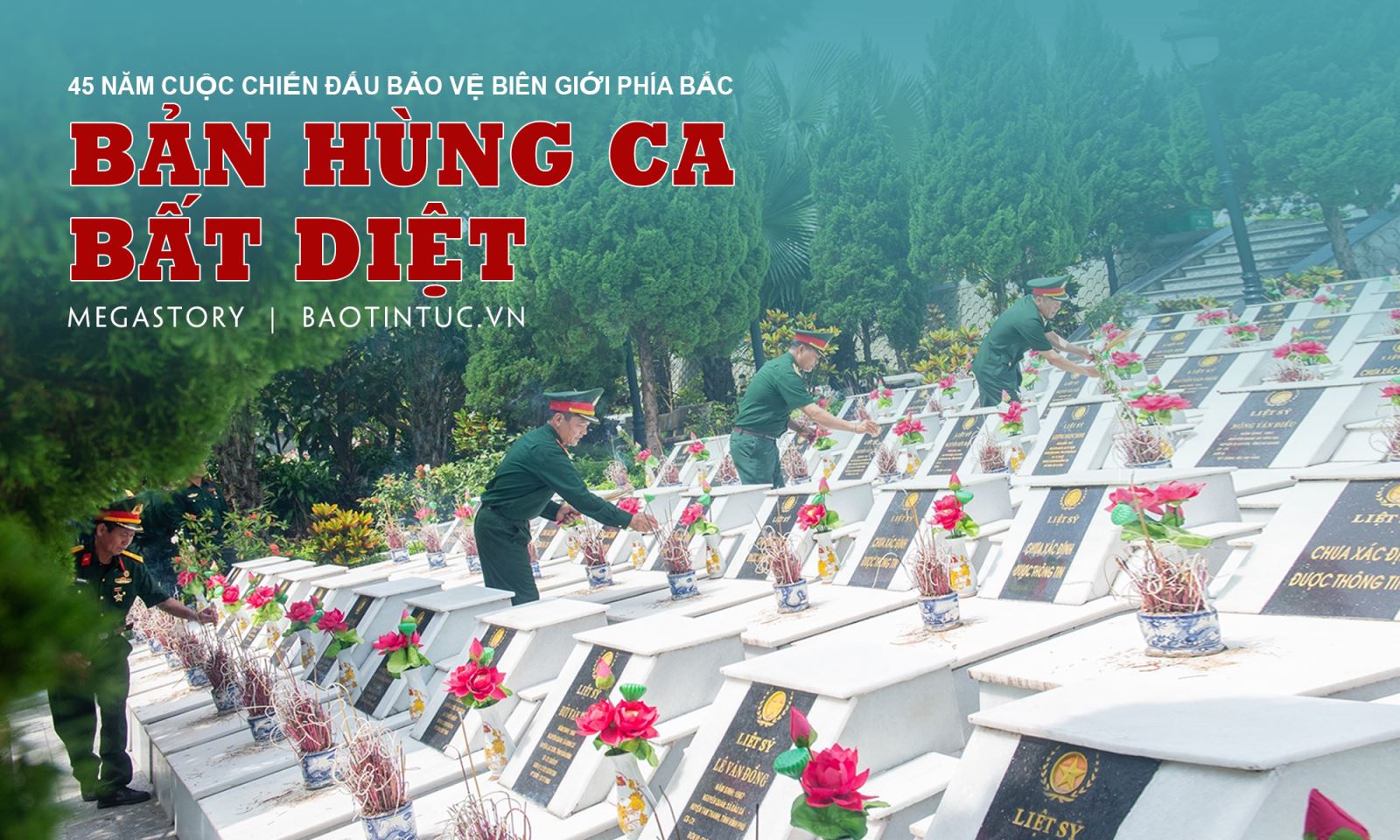 In the mind of every Vietnamese, February 1979 is always engraved as a reminder for future generations to remember and show gratitude to the officers, soldiers of the armed forces and people of the northern border of the Fatherland who fought and sacrificed to protect the sovereignty , security and border of the thousand-year-old territory that our ancestors left behind.
In the mind of every Vietnamese, February 1979 is always engraved as a reminder for future generations to remember and show gratitude to the officers, soldiers of the armed forces and people of the northern border of the Fatherland who fought and sacrificed to protect the sovereignty , security and border of the thousand-year-old territory that our ancestors left behind. 
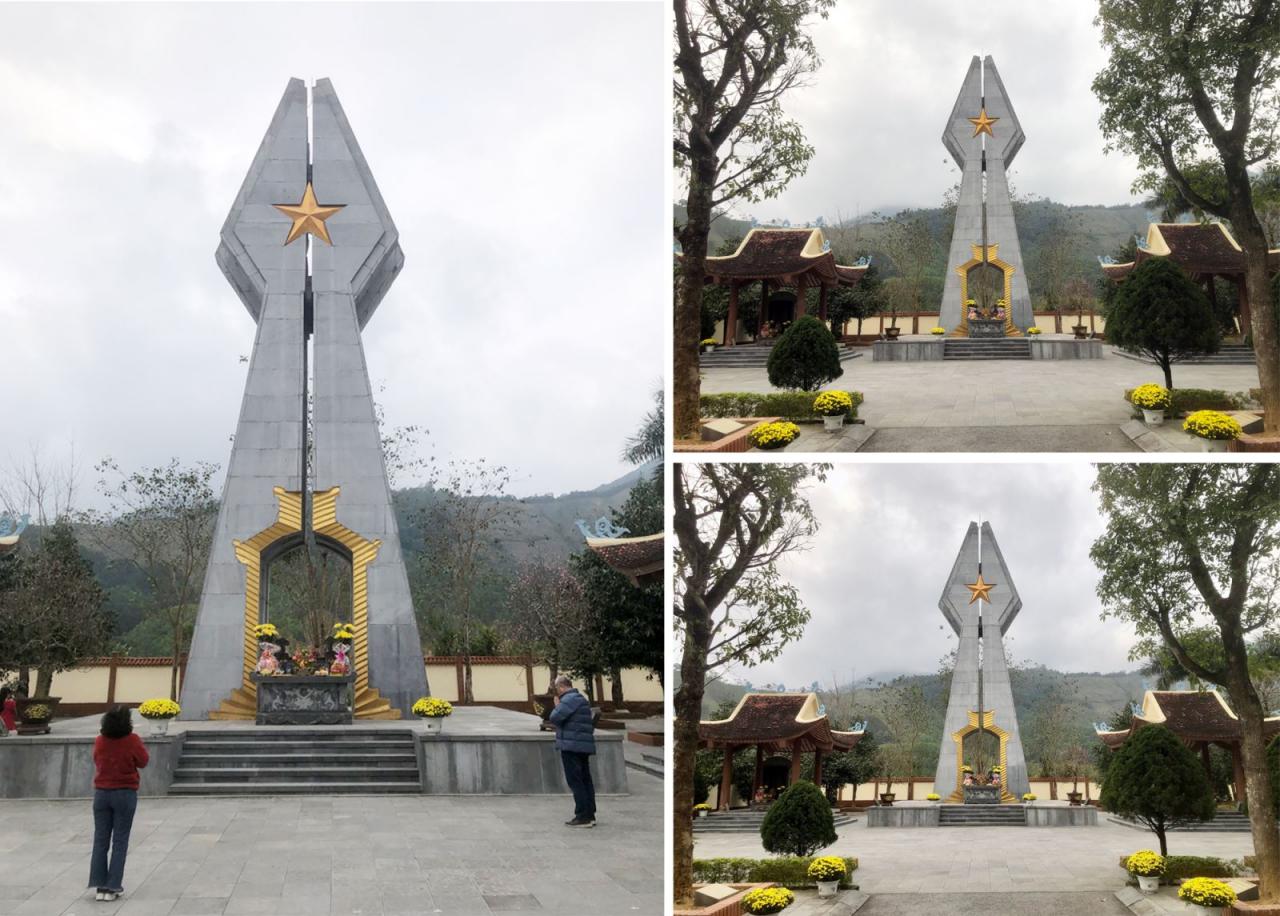
Po Hen National Historical Site.
Lieutenant Colonel Dam Quang Do - Po Hen Border Post, in charge of the Po Hen National Historical Site, said: This is the place that records the remains of officers and soldiers of Post 209 of the Po Hen People's Armed Police (now the Border Guard) and officers and soldiers of the Hai Son Forest Self-Defense Platoon and Po Hen commercial staff who heroically sacrificed their lives in the fight against the invaders to protect the Northeastern border of the Fatherland, including Hero of the Armed Forces Do Si Hoa, born in 1946, from Hong Van commune, An Thi district, Hung Yen province. Before his death, martyr Do Si Hoa was a lieutenant, Deputy Chief of Post 209 - Quang Ninh Provincial People's Armed Police (now Po Hen Border Post, Quang Ninh Provincial Border Guard). Before working at Station 209, Lieutenant Do Si Hoa participated in the resistance war against the US to save the country, fought in the Quang Tri battlefield, achieved many outstanding feats, and was awarded the Third Class Military Exploit Medal. Despite being injured and his health declining, he still volunteered to protect the northern border, directly involved in the battle and sacrificed himself on February 17, 1979. “That day, the invaders launched a massive attack. The station chief was on a mission, Lieutenant Do Si Hoa directly commanded the combat unit, breaking many enemy attacks. When the Doi Que high point was captured, comrade Do Si Hoa organized the attack force, drove the enemy out of the high point and heroically sacrificed himself on the afternoon of February 17, 1979. On March 10, 1979, comrade Do Si Hoa was posthumously promoted to the rank of senior lieutenant and posthumously awarded the Second Class Military Exploit Medal. On December 19, 1979, martyr Do Si Hoa was posthumously awarded the title of Hero of the People's Armed Forces,” Lieutenant Colonel Dam Quang Do recalled.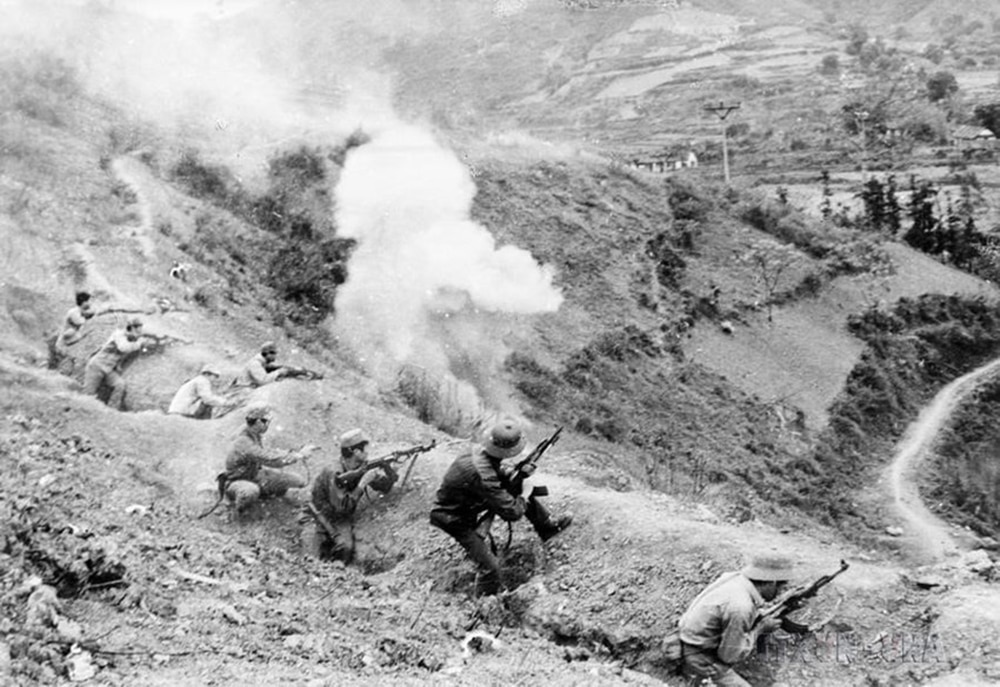
Armed police force bravely fought in the Dong Dang Fort area, Lang Son province.
As a peace-loving nation, Vietnam always desires peace with other nations and always strives to foster peace and progress in the world. However, when independence and sovereignty are threatened by external forces, the Vietnamese people are always united, with determination and the spirit of "Determination to die for the Fatherland", ready to "sacrifice to the last drop of blood to preserve the country" being strongly promoted. On February 17, 1979, the Chinese government mobilized about 600,000 troops along with over 500 tanks, armored vehicles, thousands of artillery pieces of all kinds... to launch an attack to invade Vietnam's territory along the entire northern border from Phong Tho (Lai Chau) to Mong Cai (Quang Ninh). Exercising their legitimate right to self-defense, the Vietnamese army and people fought bravely and fought back fiercely, even though at that time, the Vietnamese people faced a huge challenge: The resistance war against the US to save the country had not long ended (1975), and the consequences were still very severe; they had just ended the Southwestern Border Protection War and were carrying out an international mission to help the Cambodian people overthrow the Pol Pot genocidal regime and revive the country. The economy faces many difficulties due to the US embargo; reactionary forces at home and abroad were still trying to sabotage... Besides, this war had a great impact on the psychology and emotions of the people of the two countries because China was the country that had provided great support and assistance, both politically, materially and spiritually, to Vietnam in the two previous resistance wars to save the country (against French colonialism and American imperialism).
The Vietnamese people are always united with the determination "to sacrifice everything, but never lose the country, never become slaves".
Before the large-scale attack on February 17, 1979, the Vietnamese Government issued a statement stating that: The Chinese authorities are going against the interests of the people, seriously undermining the solidarity and friendship between the people of the two countries, and at the same time affirming that the Vietnamese army and people have no other way but to exercise their legitimate right to self-defense to fight back. When the country is threatened, when the mountains and rivers are in danger, the poem "Nam Quoc Son Ha" resounds in every village, alley, and the soldiers are the first and last to be ready to receive the bullets and arrows. National pride and the desire for independence, freedom, peace, territorial sovereignty, and self-reliance always exist in every Vietnamese person. That righteousness and aspiration have been transformed into the strength of the entire nation by the wise policies and organizational skills of our Party to achieve victory. Suffering heavy losses without achieving the basic goals set out, and being strongly condemned by international public opinion, on March 5, 1979, the Chinese government announced its withdrawal from Vietnamese territory. With the tradition of humanity, putting the big picture first, and wishing to consolidate peace and restore friendly relations between the two countries, the Central Party and the Government of Vietnam involve the armed forces and people on the northern border front to stop all military activities so that the Chinese troops could withdraw. By March 18, 1979, China had completely withdrawn its troops from Vietnam. The battle to protect the northern border lasted for a month. However, conflicts continued for the next 10 years, until 1989.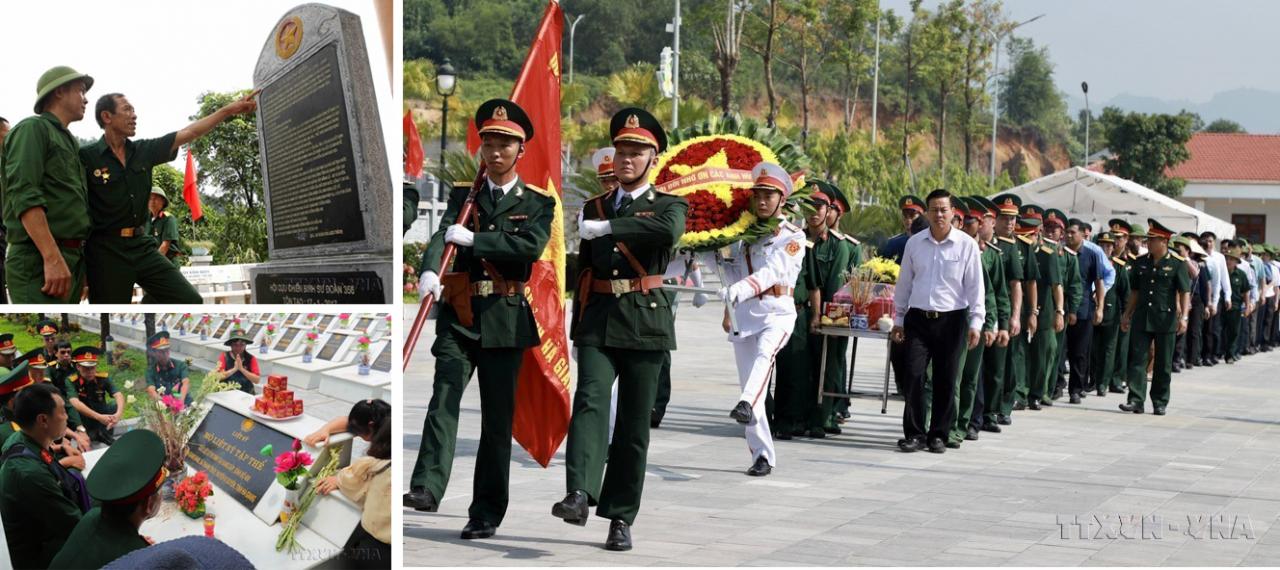
Veterans and relatives of martyrs came to pay tribute and commemorate the martyrs who sacrificed their lives in the fight to protect the northern border.

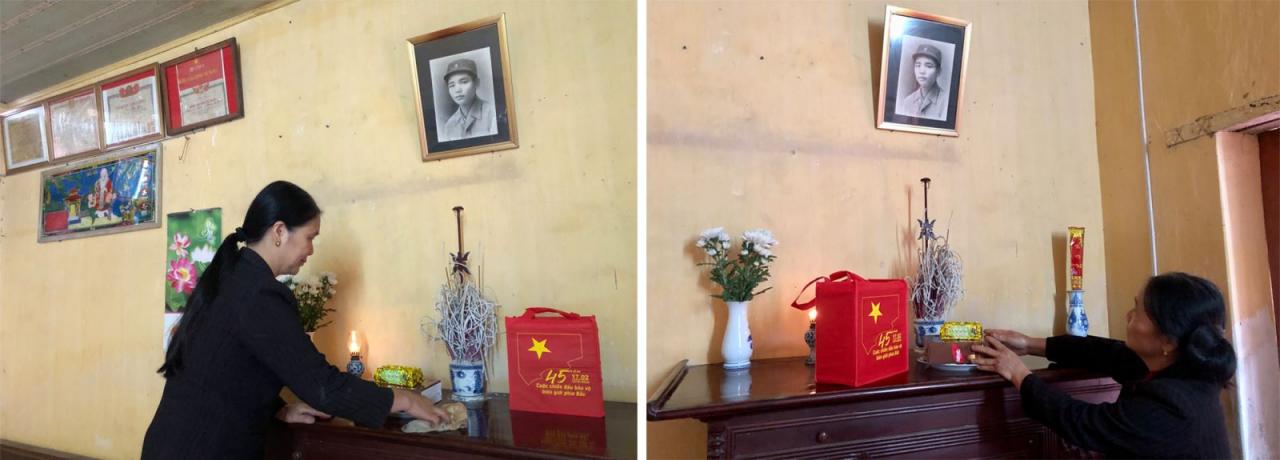
Mrs. Pham Thi Tuoi - sister of Heroic Martyr Pham Ngoc Yeng.
In February 1979, comrade Pham Ngoc Yeng was a lieutenant - Political Commissar of Company 2 (Battalion 4, Regiment 12, Division 3), guarding Tham Mo hill (Dong Dang town, Cao Loc district, Lang Son province). At dawn on February 17, 1979, the invaders concentrated fire and troops in an attempt to capture Tham Mo, but were fiercely fought back by our troops. At dawn on February 22, 1979, after increasing their forces, the enemy's Division 63, with tanks and artillery support, launched a comprehensive attack on Tham Mo high point. The tug-of-war battles took place fiercely. The nurses, military personnel, and liaison soldiers fought bravely with the enemy, fighting from the Company's cultural house to the command bunker. After 5 days of fighting, Company 2 had only 20 soldiers left, commanded by political commissar Pham Ngoc Yeng. On the afternoon of February 26, 1979, the enemy concentrated on capturing Tham Mo hill. Our troops fight the enemy with everything they had, from guns and bullets to rocks and bare hands. At dusk, the enemy launched a final attack. Lieutenant Pham Ngoc Yeng commanded the remaining 10 soldiers of the Company. After running out of bullets, he fought hand-to-hand with the enemy and heroically sacrificed himself. Colonel Phan Van Thang, who was in the same unit as Hero and Martyr Pham Ngoc Yeng, recalled: “The enemy occupied the battlefield, we ran out of bullets, retreated to Yeng's fortifications, and saw him sitting with his back against the trench wall, his right hand still tightly holding the K54. From then on, we called Tham Mo hill Pham Ngoc Yeng hill”… In Mrs. Pham Thi Tuoi's mind, Yeng was very tall, and had to bend down to pass through the door of the house. “At the end of 1978, he came home on leave, planning to get married, but because of the tense border situation, he had to return to his unit, and the wedding had to be postponed after Tet,” Ms. Age recalled. With tears in her eyes, Ms. Tuoi said: “After my brother died, every night my mother went down to the kitchen and cried. The unit came to pick up the martyr's relatives to go to the district to receive the title of Hero of the People's Armed Forces, but only my father went. My mother was so sick because she missed her son that she died in 1987. Before closing her eyes, my mother did not forget to tell my father to try to bring my brother's remains back to her hometown.” Fulfilling the last wish of Ms. Hoang Thi Thue (mother of martyr Pham Ngoc Yeng), in 1991, the family went to Cao Loc cemetery to bring martyr Pham Ngoc Yeng back to his hometown for burial.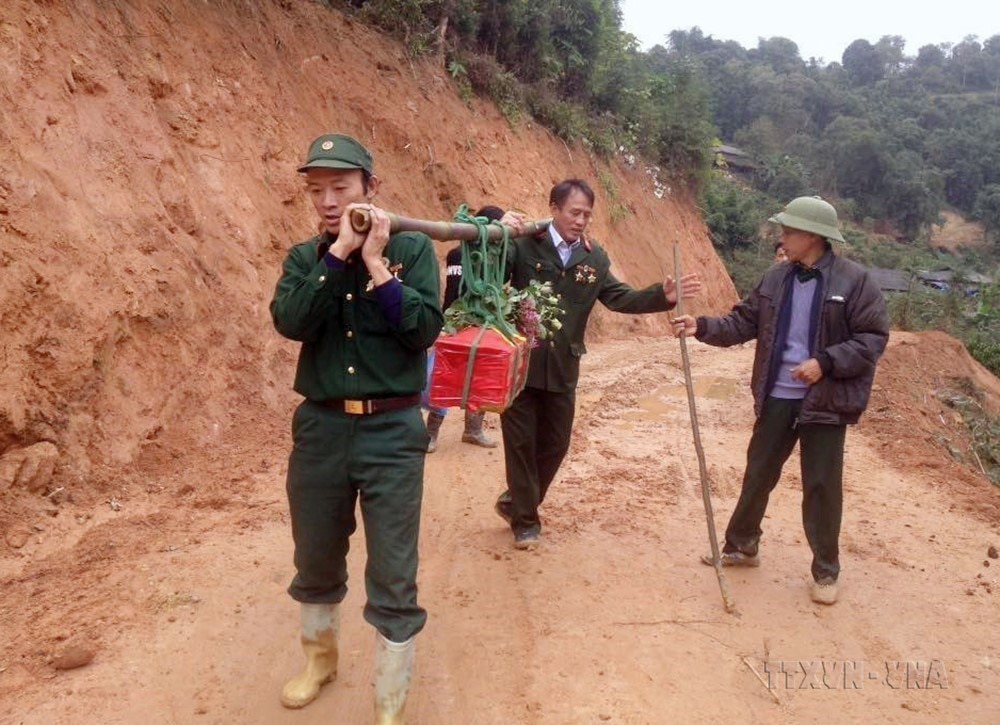
Veteran Nguyen Van Kim and his comrades brought the remains of martyr Dinh Van Chung (who died at Hill 900, Vi Xuyen front, Ha Giang) to the martyr cemetery in Thanh Thuy commune.
45 years have passed, but the pain of the war to protect the Fatherland at the northern border is still there. This land is still full of traces of war. Up to statistics now, there are still no exact on the human and property losses of our army and people in the war to protect the Fatherland and fight against encroachment at the northern border. However, just statistics on one front are enough to see the fierceness of the war and the pain and loss. At the Vi Xuyen front ( Ha Giang ) alone, nearly 5,000 officers and sacrificed, of which only over 1,700 remains have been found, the remaining over 3,000 remains are still scattered somewhere in the crevices, buried under the roots of trees on the steep mountain slopes, and until now have not been soldiers able to be found and retrieved. Our Party, State and people will never forget the contributions of our compatriots, cadres and who fought and sacrificed to gain victory in the battle to protect the northern border. The great sacrifices and contributions of heroic martyrs, wounded soldiers and martyrs' families will forever be engraved in the hearts of every Vietnamese person.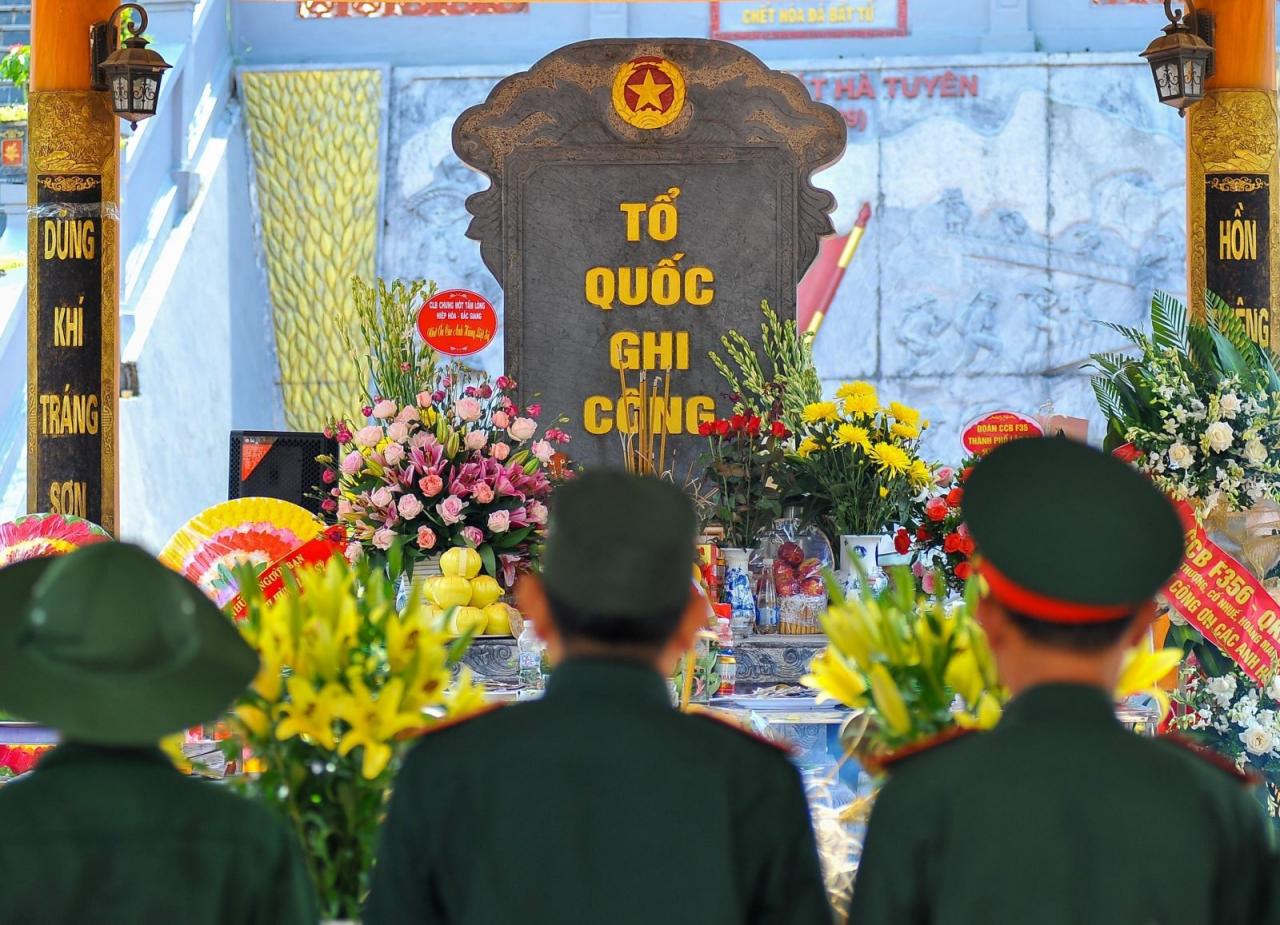
Veterans burn incense to commemorate martyrs at Vi Xuyen National Martyrs Cemetery (Ha Giang).
Looking back at the fight to protect the northern border of the Fatherland 45 years ago is to affirm the historical truth and justice of that fight; to show gratitude and honor the compatriots and soldiers who fought and sacrificed to protect every inch of the Fatherland's border; to propagate andeducate the people's tradition of patriotism and deep gratitude, especially among the youth, to the generations of fathers and brothers who spared no effort in sacrificing their youth, blood and lives to protect the independence, freedom, unity, sovereignty and territorial integrity of the Fatherland.
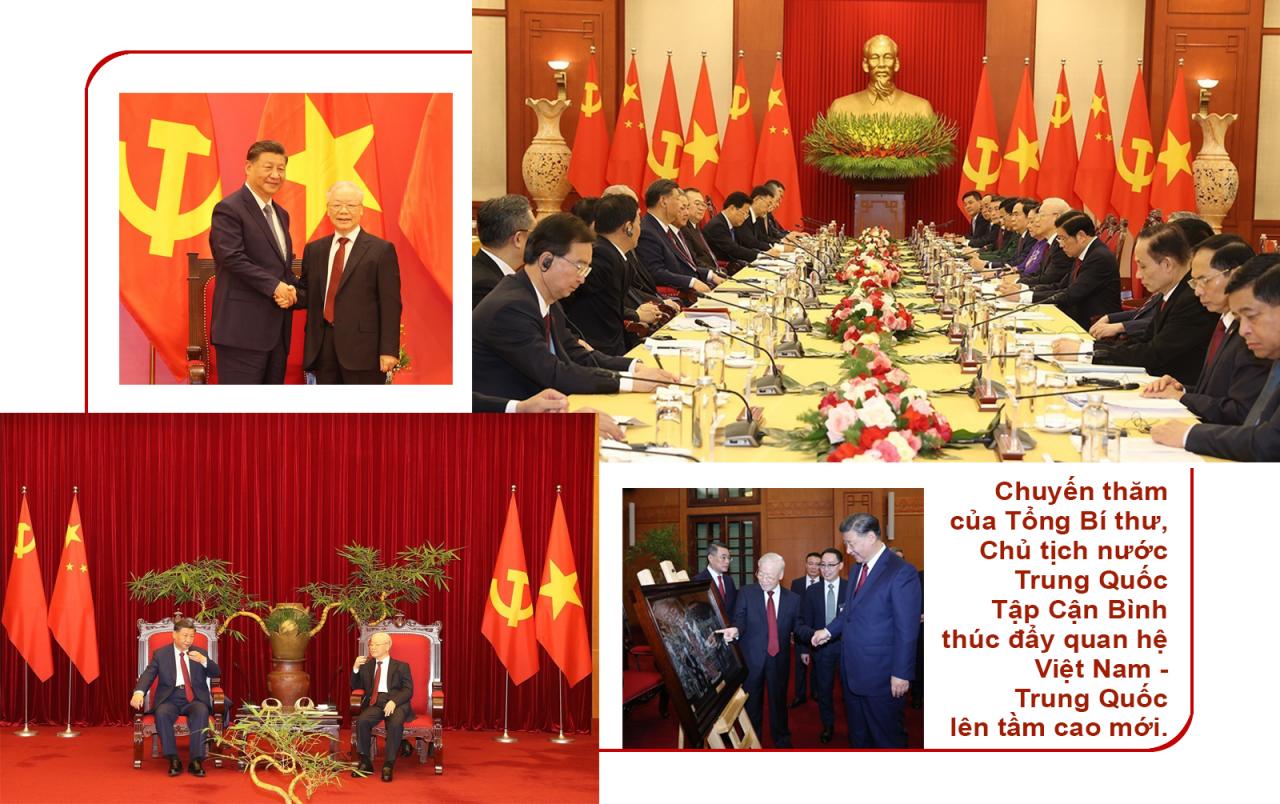
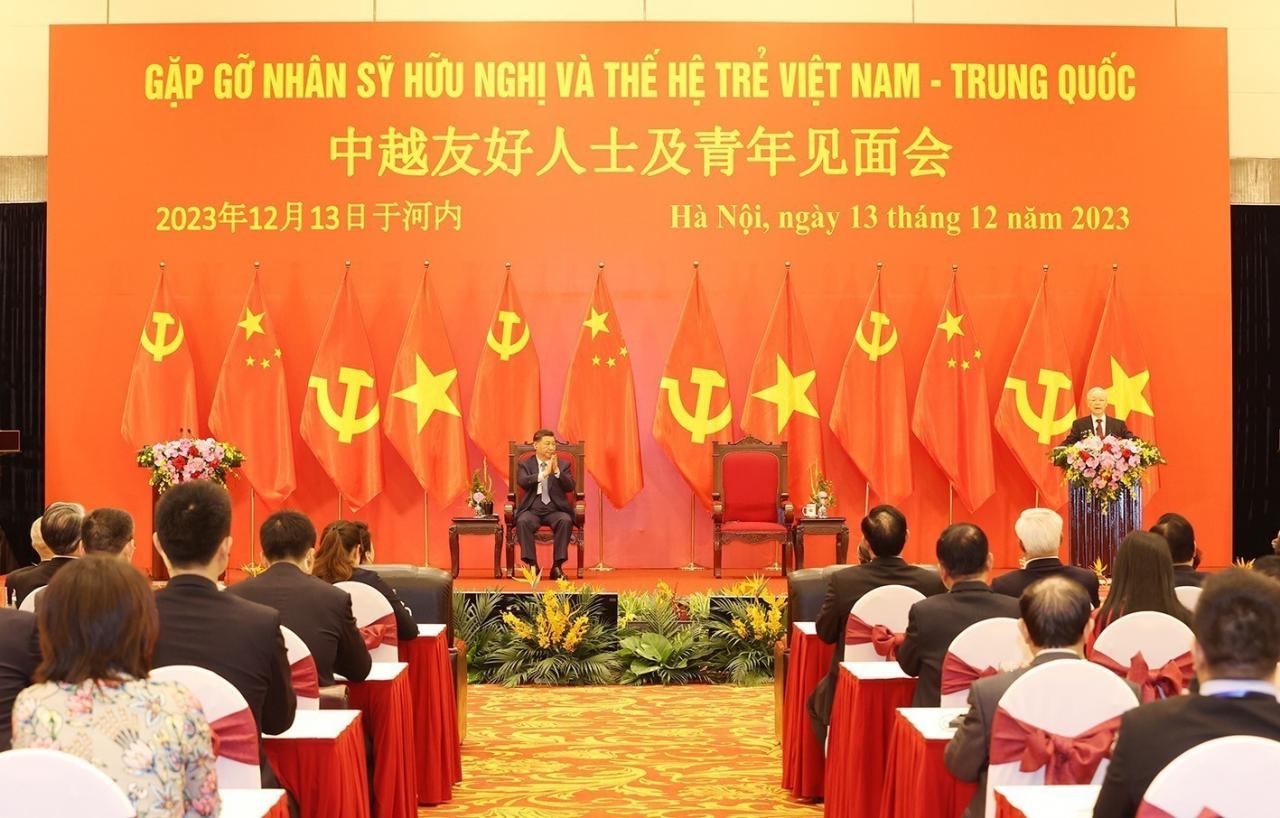
General Secretary Nguyen Phu Trong spoke at the Friendship Meeting with intellectuals and young generations of Vietnam and China, held in Hanoi on the afternoon of December 13, 2023.
Speaking at the Friendship Meeting with Vietnamese and Chinese intellectuals and young generations, held in Hanoi on the afternoon of December 13, 2023, on the occasion of the State visit to Vietnam by General Secretary and President of China Xi Jinping, General Secretary Nguyen Phu Trong expressed his joy at meeting with General Secretary and President Xi Jinping again with friends and comrades from China and Vietnam who have made many contributions to the Vietnam-China friendship, and was moved to meet Chinese intellectuals, officials and relatives of Chinese comrades who had helped Vietnam during the years of fighting for national independence. General Secretary Nguyen Phu Trong expressed his confidence when meeting with young people from the two countries with the aspiration to follow in the footsteps of previous generations, bringing vitality and a bright future to the Vietnam-China relationship. General Secretary Nguyen Phu Trong emphasized that the friendship between Vietnam and China has many good traditions. The close and intimate relationship between the people of the two countries is beautifully described in the song Vietnam - China by musician Do Nhuan: "Bathing in the same river, I look over there, you look over here/Early morning we hear the rooster crowing together". The people of the two countries have given each other much valuable support and assistance in the past struggle for national independence and the present cause of building socialism. General Secretary Nguyen Phu Trong affirmed that the Party, State and people of Vietnam always respect, remember and highly appreciate the strong and great support of the Party, State and people of China for Vietnam. Sharing about one of the most important and fundamental directions of cooperation in the Vietnam-China relationship is to consolidate a more solid social foundation, General Secretary Nguyen Phu Trong affirmed that the deep and earnest aspirations of the people of the two countries for friendship, peace, cooperation and development for generations are a great source of strength and a solid foundation for belief in a bright future for the relationship between the two countries.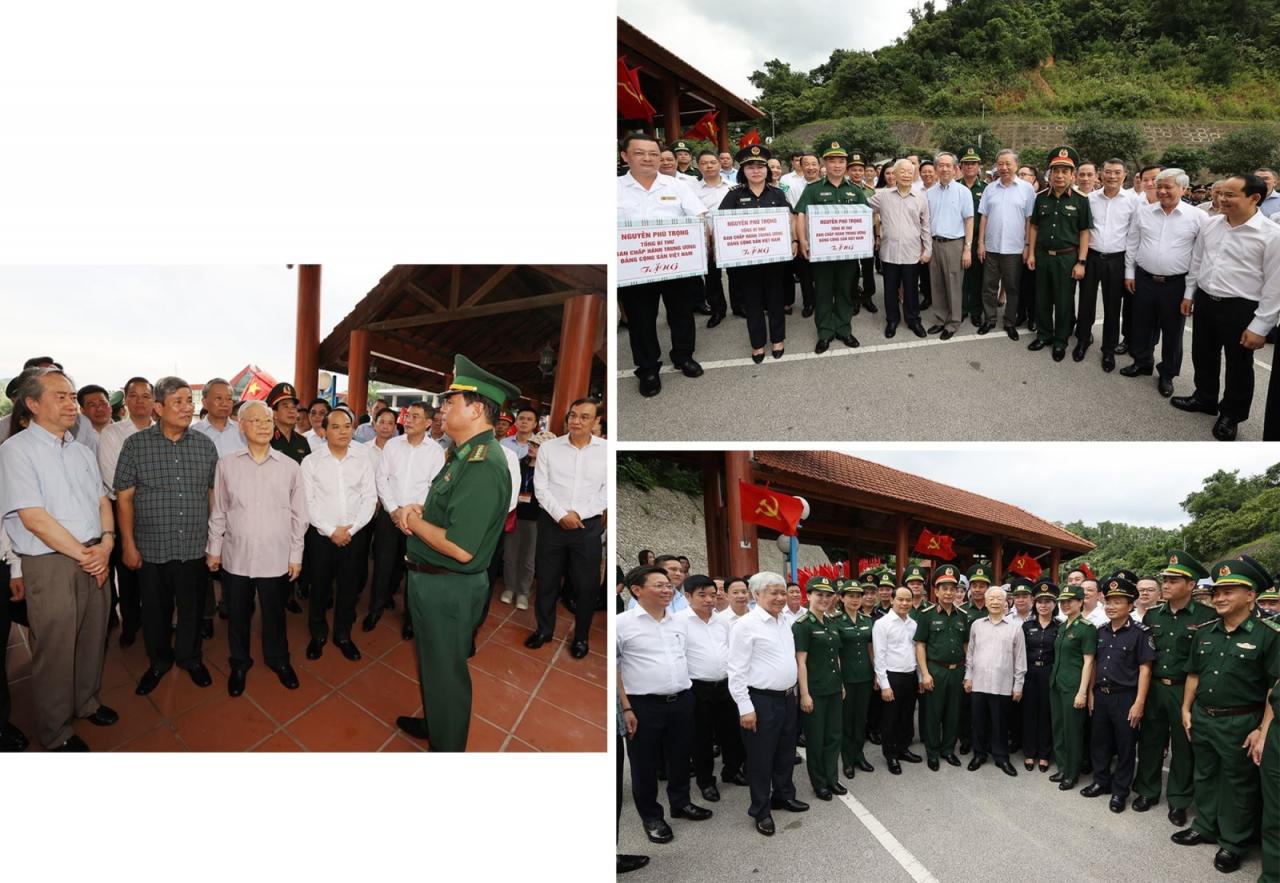
On the afternoon of August 25, 2023, General Secretary Nguyen Phu Trong visited Huu Nghi International Border Gate. Also attending was Ambassador Extraordinary and Plenipotentiary of the People's Republic of China to Vietnam Hung Ba.
In February, the sky at the border is a deep blue. The blue color has covered the hills, mountain ranges, forests, and bullet holes of the northern border in the past. But the evidence of the fight to protect the sacred territorial sovereignty of the Fatherland is still present. Those heroic and tragic evidences always remind us of the border sovereignty, of the territorial boundaries that our ancestors left us for thousands of years; reminds every Vietnamese citizen of: Peace, Independence, Freedom, and National Self-reliance.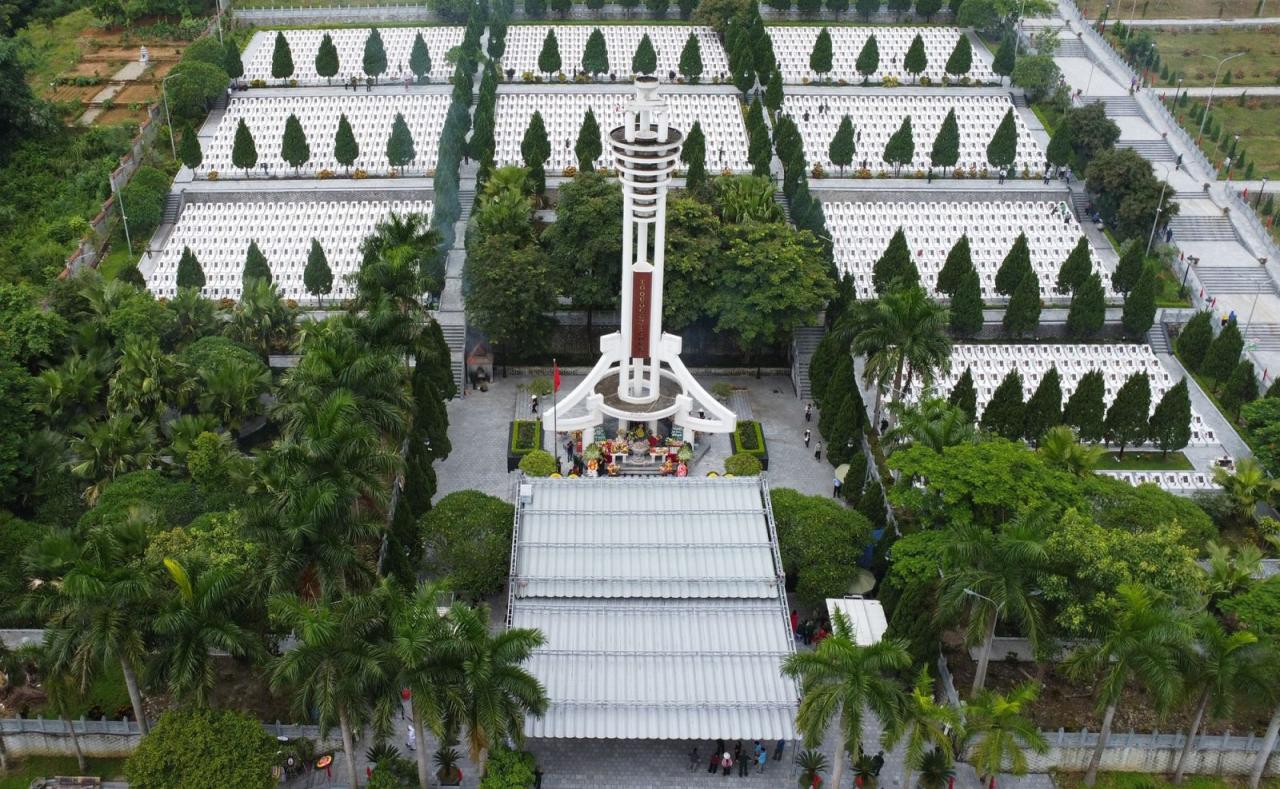
Article: Viet Ton - Diep Truong - Hong Diep Photos, video: Viet Ton - VNA Presentation: Nguyen Ha
02/17/2024 08:00
Source







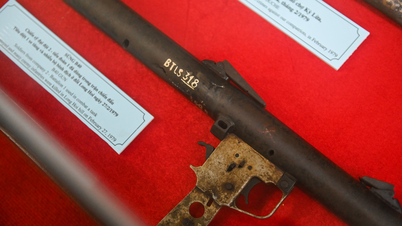

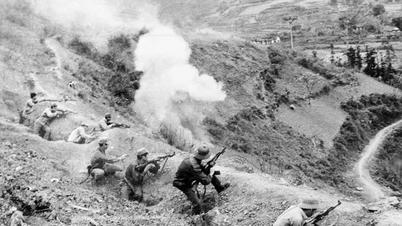



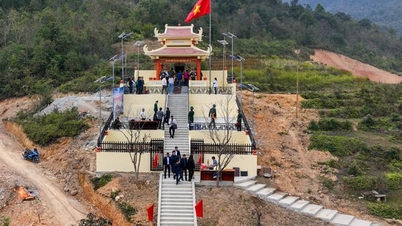



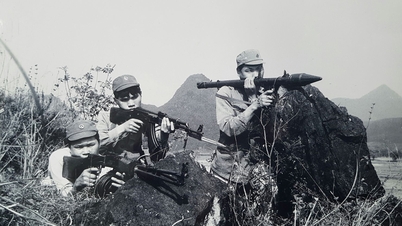

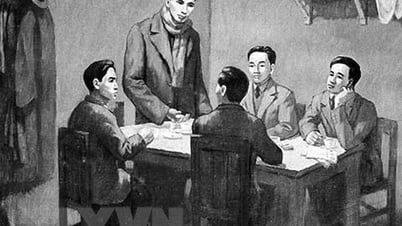
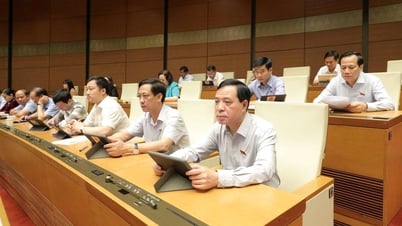





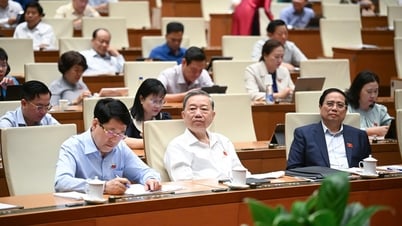

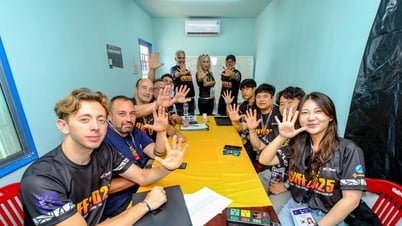






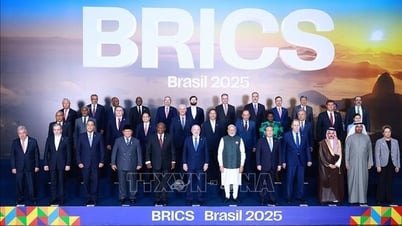
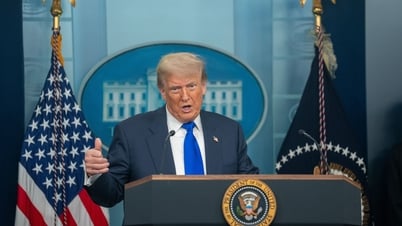
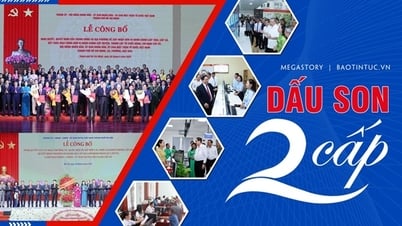
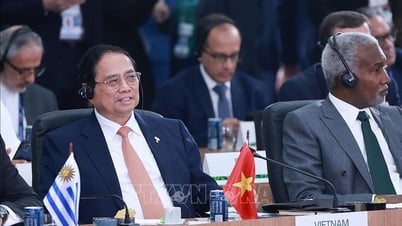
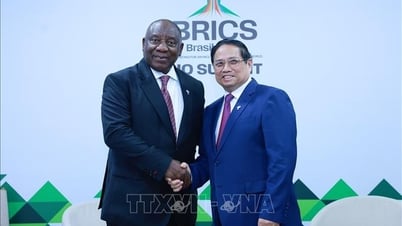
















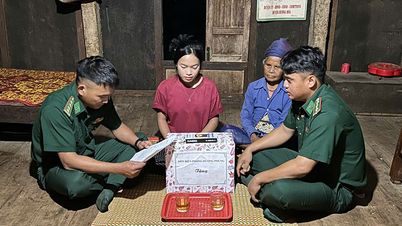













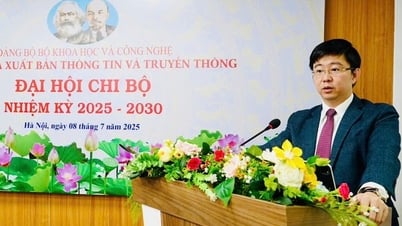

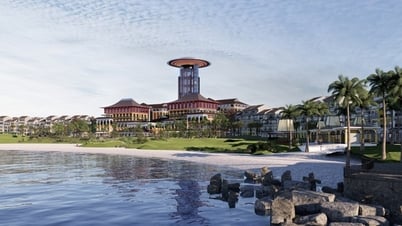

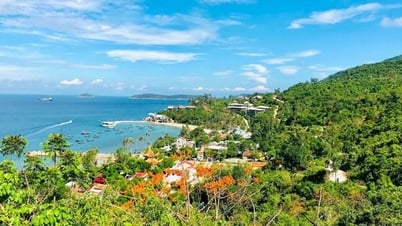
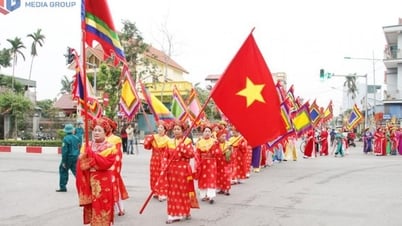
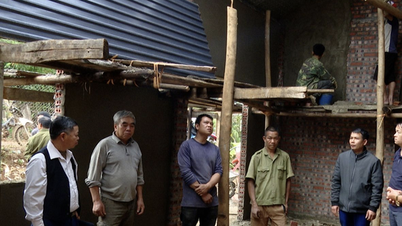
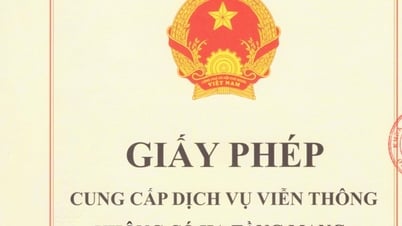
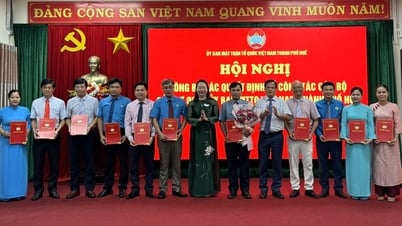



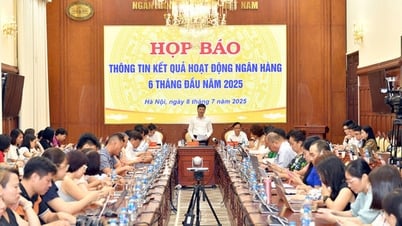

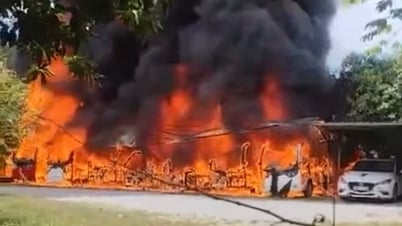

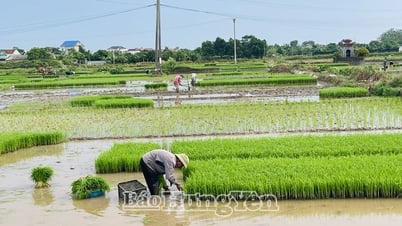











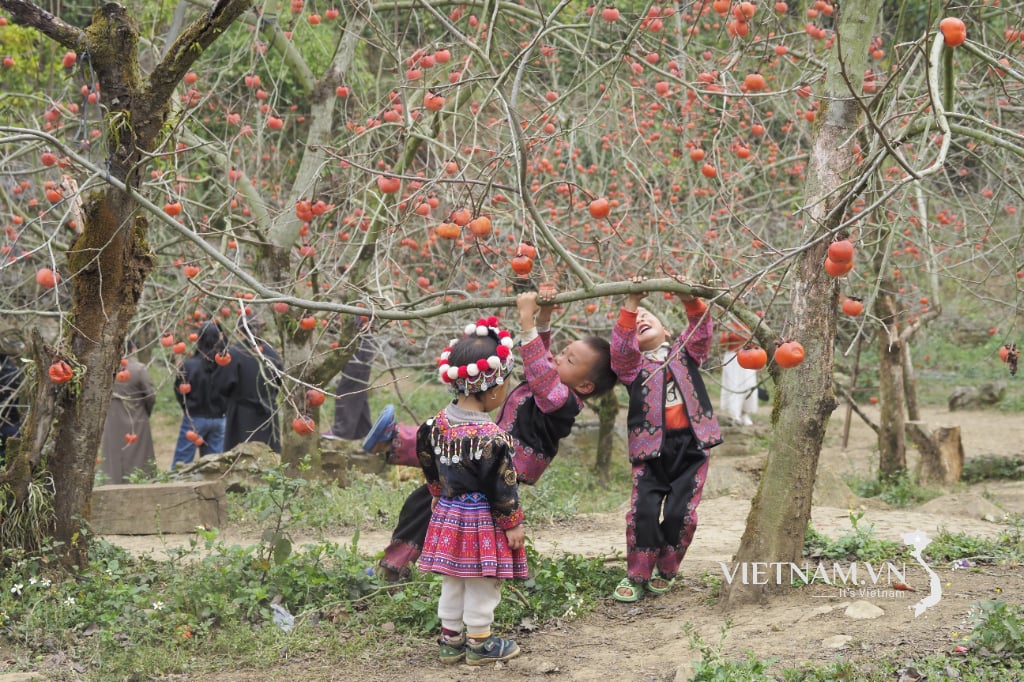



Comment (0)